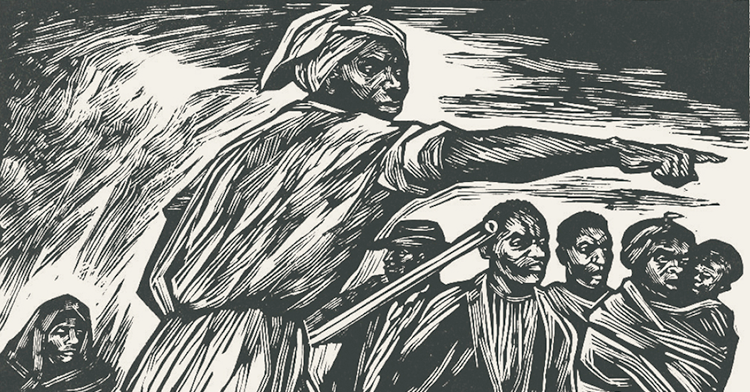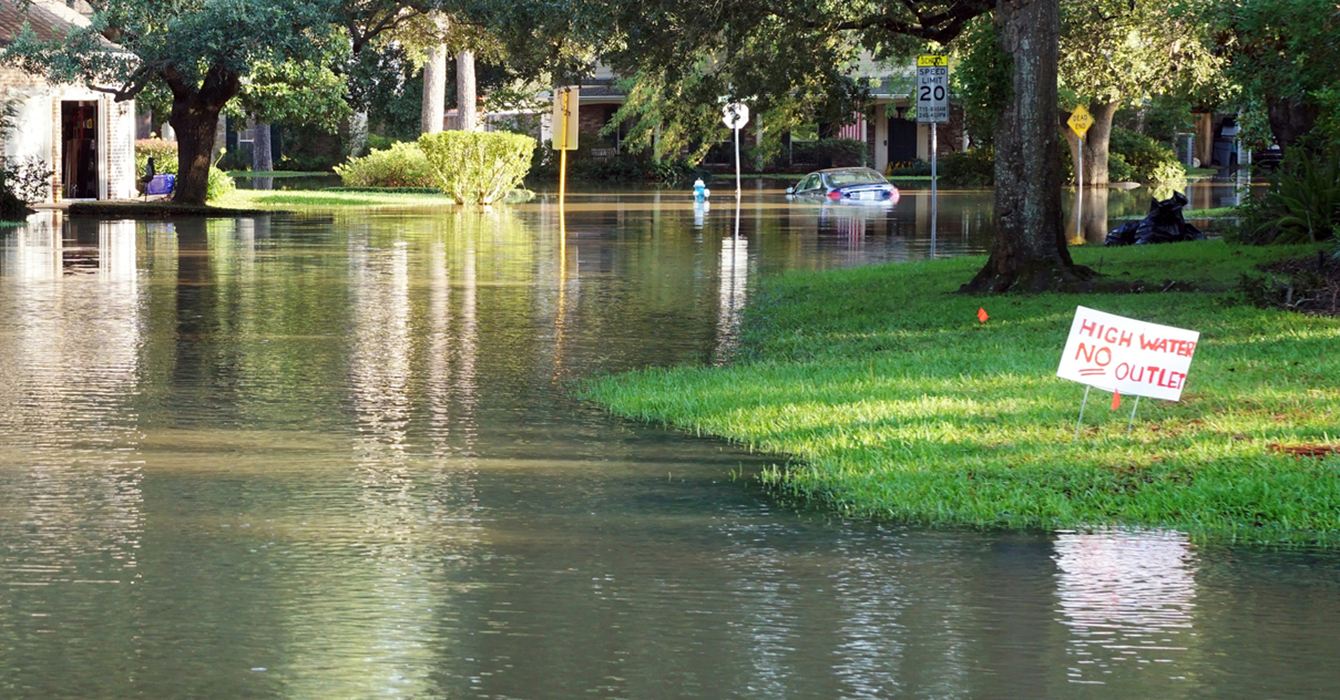Editor’s note: The following is the concluding section of “The Poetry of Care and Loss,” given by Ellen F. Davis on Oct. 27, 2009, at Duke Divinity School as her inaugural lecture as the Amos Ragan Kearns Distinguished Professor of Bible and Practical Theology.
In the lecture, Davis discusses how the poetry of Wendell Berry, Anne Porter and Mary Oliver has enabled her to appreciate the traditional functions of poetry and see them at work in the psalms.
 The complete lecture is available on iTunes U.
The complete lecture is available on iTunes U.
“Often, our theology does not have sufficient poetry.” John Chryssavgis
“Love for the earth and love for you are having such a long conversation in my heart.” Mary Oliver
The holiness of place
Wendell Berry, like Mary Oliver, is a consummately local writer. Nearly every piece of his poetry, fiction and essays takes as its chief subject the place he knows best, his Kentucky hillside farm and its immediate neighborhood. While Oliver focuses on the life of wild creatures, Berry attends most closely to what has been placed within the realm of human care:
The bounds of the field bind
the mind to it. A bride
adorned, the field now wears
the green veil of a season’s
abounding.
Berry has various counterparts among the psalmists, who celebrate the bounty of the Israelite field: grain, wine and oil, flocks of sheep and goats. One, the poet of Psalm 37, is, like Berry, especially sensitive to the economic vulnerability of small farmers and the loss of blessing that attends the loss of land. Five times Psalm 37 affirms, va‘anavim yirshu-’aretz, “the lowly [or “vulnerable”] shall inherit land.” In verse 18, the psalmist affirms that their “inheritance” shall endure forever (venaḥalatam le‘olam tehieh) -- naḥalah, the plot of arable land that was the intergenerational holding (ideally speaking) of every Israelite family. It seems that Jesus himself pondered this psalm, since that repeated phrase appears in the Beatitudes, where we generally render it, “The meek shall inherit the earth.” (Matthew 5:5) Have we lost something essential with that less material, and therefore less economically freighted, translation?
I would judge the strongest link between Berry and the psalmists to be their shared conviction about the holiness of place. That conviction is so basic to Berry’s self-understanding that he gives himself this advice in “How to Be a Poet”:
Stay away from anything
that obscures the place it is in.
[He mentions electronic screens, for instance.]
There are no unsacred places;
there are only sacred places
and desecrated places.
Here we have come to an area of mass insensitivity for urban Western Christians. The secularity of place is part of our cultural mindset -- or more accurately, it is the gap in our mental frame that destabilizes the whole structure. For most of us, place is little more than real estate, wherever we happen to be paying rent or a mortgage at any given time. Therefore the biblical insistence that God can invest hopes and dreams in a particular place, can even make a kind of home on this earth, is incomprehensible and often offensive.
“I simply don’t believe that Jerusalem is different from any other place,” a theological student once said to me -- unaware perhaps of how fully he was distinguishing himself from virtually all the biblical writers. The holiness of Zion is one foundational aspect of the scandal of particularity and concreteness that pervades the Bible and for Christians culminates in the incarnation of the Godhead in a Jewish male. The psalms are the locus classicus of the doctrine of Zion’s holiness; many of them celebrate Zion, or conversely, lament its loss.
Read along with Berry’s poems, the songs of Zion could be instrumental in reviving a cultural sensitivity to the claims that places make upon us as people of faith. If we can appreciate, even a little, what the holiness of Jerusalem might mean, then we have a chance of seeing other places as holy. If one place is sacramental, then perhaps every place, provided we learn to revere it, may yield access to grace.
Many of Berry’s Sabbath poems are laments for a landscape misused or lost, especially for “the lamed woods” whose great trees have been felled in the careless stripping of the vast forest of the Cumberland Plateau:
The burden of absence grows, and I pay
daily the grief I owe to love
for women and men, days and trees
I will not know again. Pray
for the world’s light thus borne away.
Pray for the little songs that wake and move.
The point for those who pray is that lamentation is local work. It must attach to particular places and lives, because lamentation is the debt the faithful pay to love. At the same time, to grieve for a place is work that is more than personal:
To live to mourn an ancient woodland, known
Always, loved with an old love handed down,
That is a grief that will outlast the griever,
Grief as a landmark, grief as a wearing river
That in its passing stays…
“Grief that will outlast the griever” -- mourning a place is one aspect of participation in a multi-generational tradition of love and care, and likewise of patience and hope. A fragile landscape, such as the hill country of Kentucky (or Israel), might be severely damaged in just a generation of carelessness -- or a few years, if the pace is accelerated by industrialized logging. However, the healing of places cannot be accomplished in a human lifetime. Healing is God’s work, like creation itself, and so the hope of healing involves prayer and patient waiting, as well as the ancillary grace of our labor:
For we are fallen like the trees, our peace
Broken, and so we must
Love where we cannot know,
And must await the wayward-coming grace
That joins living and dead,
Taking us where we would not go --
Into the boundless dark.
When what was made has been unmade
The Maker comes to His work.
Berry’s Sabbath poems may point toward a renewed appreciation of the Zion psalms as local poetry that expresses burdened and sometimes anguished love. Psalm 102 is a lament, an abject petition that seems at first to erupt out of a purely personal experience of suffering:
My days are consumed in smoke,
and my bones smolder like a hearth.
…
All day long my enemies revile me;
my mockers curse by me.
But when the psalmist makes a demand of God, it becomes evident that the whole community is suffering:
You will arise, you will have compassion on Zion,
for the time to pity her, the appointed time has come --
for your servants cherish her stones,
and her very dust they pity --
so the nations may fear the Name of YHWH,
and all the kings of the earth, your glory,
in that YHWH has rebuilt Zion…
Psalm 102 makes explicit what is true of all the Zion psalms, viewed in historical context: the disposition to which they give expression is not triumphalism but love, love working against the odds -- for Jerusalem, like our own places, was often under threat from exploitative powers, domestic and foreign. So these psalms may give us language and models to pray for other diminished and ruined places. Contrary to our normal assumptions, faithful lament is not wholly spontaneous; it is a learned discipline.
Practicing the laments for Jerusalem, we may come to feel -- even in our suffering, yearning bodies, as the psalmist feels it -- that cherishing our places is a primary religious obligation, no less than cherishing a spouse or a child. It would be sanity for us, literally healing of our minds, to share Berry’s lament:
To destroy what we were given
in trust: how will we bear it?
It is our own bodies that we give
to be broken, our bodies
existing before and after us
in clod or cloud, worm and tree,
that we, driving or driven, despise
in our greed to live, our haste
to die. To have lost, wantonly,
the ancient forests, the vast grasslands
is our madness, the presence
in our very bodies of our grief.
The Psalter as a whole is Tehilim, “praises.” Lament yields to praise -- recurrently, often haltingly, never fatuously. So now we come to a Zion song of praise that might well be the biblical icon for the discipline of earth care, Psalm 65. The first important thing about it is that it opens with silence: Lekkha dumiah tehilah Elohim b’Tzion/“To you silence is praise, O God in Zion.” That line may be enigmatic to prose writers like me, but Wendell Berry’s “How to Be a Poet” offers indirect insight. He begins by reminding himself:
“Make a place to sit down… Be quiet.” The poet must “Accept what comes from silence,” the little words that are “like prayers/prayed back to the one who prays,” and from them:
make a poem that does not disturb
the silence from which it came.”
For the poet of Psalm 65, silence is sobering; it yields to a short prayer of confession:
Iniquitous words [or “deeds,” divrei ‘avonot] are too powerful for me;
our crimes (pesha‘enu) -- you are the one who atones for them.
The plural pronoun -- “our crimes” -- is telling. The confession of sin implicates a community -- potentially, all of us. The rest of the psalm would seem to be the praise that flows from atonement: a hymn to the God who “answers us justly, with awe-inspiring works” (nora’ot). Notably, these are God’s works of creation, both in the beginning -- “He sets mountains in place by his strength”-- and through creatio continua.
Creatio continua is evidenced in a portrait of God that is without parallel in the Bible: a close-up of God the Farmer, who “sets the grain” in the same way the mountains are “set” in place (the same Hebrew verb, hekhin, describes both). God “waters furrows, presses the hillocks firm” and “blesses growth,” with the happy result that God’s “wagon tracks drip ripeness” -- evidently as the Creator of heaven and earth, sweating and dirty probably, drives the harvest home through hillside pastures “clothed with flocks…; they shout out, they even sing.”
A psalm that begins as a confession of sin addressed to God in Zion concludes with a picture of the immediate and essential source of Zion’s blessing: the fertile yet fragile agrarian landscape surrounding Jerusalem. Psalm 65 is a culturally appropriate icon, and that only underscores its religious import. By highlighting this homely aspect of God’s nora’ot, “awesome things,” it showed Israelite farmers -- the vast majority of the Iron Age population, women and men -- how with their care they might cooperate in God’s ongoing work of creation. This biblical icon evokes the sacredness of ordinary space, all the places in and from which we live, and likewise of ordinary work, done with care and gratitude, in recognition of God’s work. It evokes, in Berry’s words,
The possibility
Of human life whose terms
Are Heaven’s and this earth’s.
“The Farm” is the longest of Wendell Berry’s many Sabbath poems; in 14 pages it details all the work of a year. His poem might well serve as a commentary on Psalm 65:
Work done in gratitude,
Kindly, and well, is prayer.
…
This is not work for hire.
By this expenditure
You make yourself a place;
You make yourself a way
For love to reach the ground.
In its ambition and
Its greed, its violence,
The world is turned against
This possibility,
And yet the world survives
By the survival of
This kindly working love.
God’s love reaches the ground through human “work done in gratitude.” Gratitude is the common thread running through every poem I have treated here; Iron Age and contemporary, these poets share the understanding that gratitude is the creaturely response to grace. God’s grace and our gratitude are the two sides of the coin that is spent so freely in “the other kingdom,” where we may live only on terms that are not ours alone, but “Heaven’s and this earth’s.” The poetry of care and loss is a gift of grace that may yet help us fit our lives to that place.











